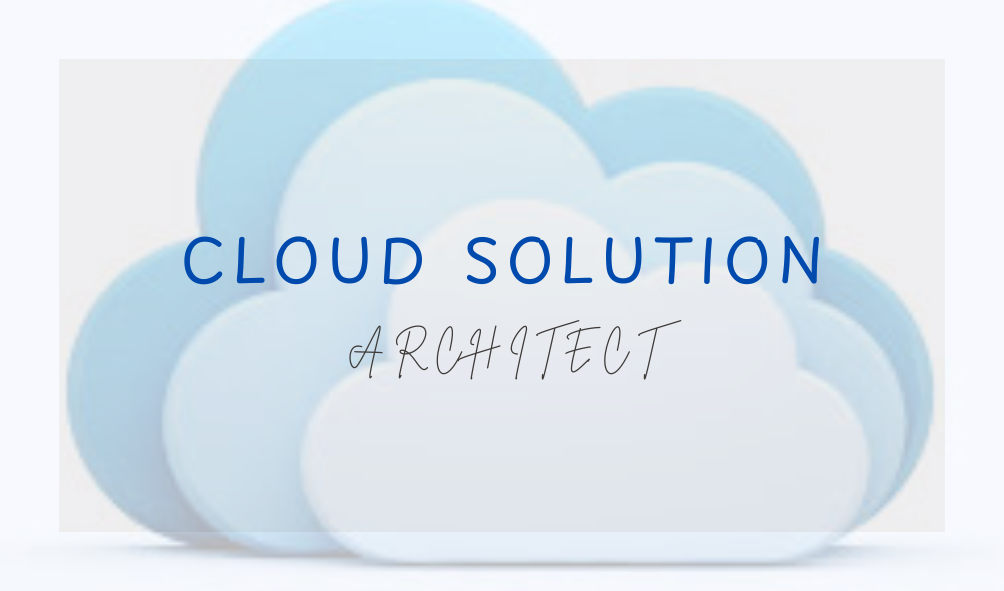Embarking on the journey to become a Solution Architect is a thrilling adventure that intricately weaves together technical expertise, business savvy, and strategic insight. This multifaceted role offers the unique opportunity to shape innovative solutions that drive organization success. In this comprehensive guide, we’ll explore the essential steps to help you navigate this rewarding career path and unlock your potential in the dynamic world of technology.

Understanding the Role of a Solution Architect
What is a Solution Architect?
A Solution Architect is responsible for designing and implementing software solutions that meet business needs. They bridge the gap between business requirements and technical solutions, ensuring that systems are scalable, reliable, and efficient.
Key Responsibilities
- Requirements Analysis: Gather and analyze business requirements.
- System Design: Create architectural designs and documentation.
- Technology Selection: Choose appropriate technologies and frameworks.
- Collaboration: Work closely with stakeholders, including developers and project managers.
- Quality Assurance: Ensure the final product meets quality standards and aligns with the architectural vision.
Educational Background
Formal Education
Most Solution Architects hold a bachelor’s degree in computer science, information technology, or a related field. However, to stand out in this competitive landscape, it’s essential to enhance your qualifications with advanced degrees or relevant certifications.
Key Qualifications and Skills
On-Premises Technology Knowledge: Understanding traditional on-premises systems, alongside cloud solutions, equips you to design hybrid architectures that can seamlessly integrate various environments..
Hands-On Experience: Practical experience in software development or IT projects is crucial. Engaging in real-world scenarios allows you to apply your knowledge and understand the intricacies of solution design.
Business Analysis: A strong foundation in business analysis helps you translate business requirements into technical specifications, ensuring that solutions align with organizational goals.
Strong Interpersonal Skills: Effective communication and collaboration are vital. As a Solution Architect, you will work closely with stakeholders, so being able to convey complex concepts clearly and build relationships is essential.
Broad Technology Skills: Familiarity with a wide range of technologies, tools, and frameworks is important. This breadth allows you to choose the best solutions for specific challenges and stay adaptable in a rapidly evolving field.
Relevant Certifications
Consider obtaining certifications such as:
- AWS Certified Solutions Architect
- Huawei HCIP Cloud Solution Architect
- Microsoft Certified: Azure Solutions Architect Expert
- TOGAF 9 Certification
These certifications validate your skills and knowledge in solution architecture.
Building Technical Skills
Programming Languages
Familiarize yourself with programming languages such as:
- Java
- Python
- JavaScript
- C#
- Operating system knowledge (Linux and Windows)
- Infrastructure As Codes( AWS CloudFormation)
- Containers( docker and Kubernetes)
These languages are often used in developing scalable solutions.
Frameworks and Technologies
Gain proficiency in popular frameworks and technologies, including:
- Cloud Platforms: AWS, Azure, Google Cloud
- Microservices Architecture: Docker, Kubernetes
- Databases: SQL, NoSQL databases (MongoDB, Cassandra)
Understanding Integration Patterns
Learn about different integration patterns and techniques, such as:
- API development
- Middleware solutions
- Data synchronization
Developing Business Acumen
Understanding Business Needs
A successful Solution Architect must understand the business domain. Familiarize yourself with:
- Industry trends
- Market demands
- Customer needs
Stakeholder Communication
Effective communication with stakeholders is crucial. Develop skills in:
- Active listening
- Negotiation
- Presentation
Gaining Practical Experience
Start with Technical Roles
Begin your career in technical roles such as:
- Software Developer
- Systems Analyst
- IT Consultant
These positions provide a solid foundation for understanding how systems work.
Participate in Projects
Engage in various projects, both independently and collaboratively. This will help you:
- Apply theoretical knowledge
- Gain hands-on experience
- Build a portfolio of successful projects
Networking and Professional Development
Join Professional Communities
Become a member of professional organizations and online communities related to solution architecture. Networking can lead to mentorship opportunities and job prospects.
Attend Conferences and Workshops
Participate in industry conferences, webinars, and workshops. These events offer insights into the latest trends and technologies, helping you stay updated.
Advancing Your Career
Seek Mentorship
Find a mentor in the field who can provide guidance and insights based on their experience.
Continuous Learning
Stay current by engaging in continuous learning. Online courses, webinars, and workshops can help you keep your skills sharp.
Explore Specialized Roles
As you gain experience, consider specializing in areas such as:
- Cloud Architecture
- Enterprise Architecture
- Security Architecture
Conclusion
Becoming a Solution Architect requires a blend of technical skills, business understanding, and practical experience. By following these steps and continuously striving for growth, you can build a successful career in this dynamic field. Embrace the journey, and you’ll find opportunities to innovate and lead in the world of technology.


